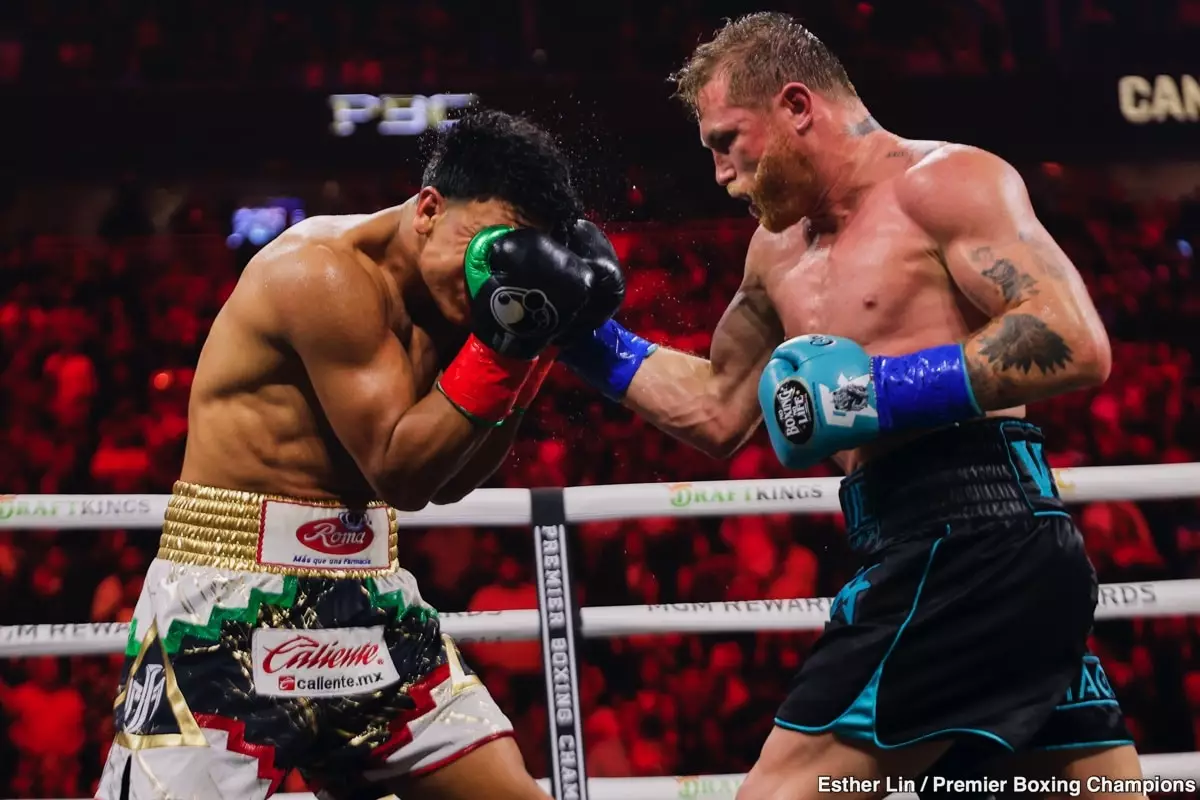Former world title challenger Gabriel Rosado expressed his skepticism about the potential fight between Canelo Alvarez and Terence Crawford. Rosado believes that the fight doesn’t make sense for Canelo due to the lack of upside for the Mexican superstar. He argues that if Canelo were to face Crawford and come out victorious, he wouldn’t receive the credit he deserves as he would be moving up two weight divisions. Conversely, Crawford, who hasn’t fought any of the top fighters at 168, stands to gain significantly from the bout, even if he loses. Rosado asserts that Crawford skipping the line to challenge Canelo puts the Mexican in a difficult position.
Rosado points out the disparity in risk and reward between Canelo and Crawford in this hypothetical matchup. He emphasizes that Crawford has nothing to lose by facing Canelo, as a loss would simply be attributed to him not belonging in the higher weight class. On the other hand, Canelo stands to gain little from the fight beyond financial compensation. Rosado highlights the importance of earning opportunities by fighting top contenders in a weight class, suggesting that Crawford hasn’t done enough to deserve a shot at Canelo.
The discussion also delves into the current super middleweight landscape and potential opponents for Canelo. Rosado mentions that David Benavidez is the only fighter fans want to see Canelo face at 168. However, he notes that Benavidez’s ability to boil down weight and compete in a lower division raises questions about his suitability as a true super middleweight. Rosado criticizes fighters like Benavidez for seeking advantages by competing in weight classes below their natural division.
Canelo’s Potential Opponents
Rosado expresses his preference for Canelo to face opponents within his natural weight class rather than fighters like Eubank Jr., whom he views as being below world-class level. He speculates about potential future matchups for Canelo, including bouts against Berlanga and Eubank Jr. Rosado acknowledges that Canelo’s desire to fight in London may be a motivating factor for certain opponent selections, despite the perceived skill gap between the fighters.
Conclusion: Strategic Matchmaking
Rosado’s analysis sheds light on the complexities of matchmaking in boxing and the considerations that go into selecting opponents for top fighters like Canelo Alvarez. The discussion raises important questions about risk, reward, and fairness in the sport, emphasizing the need for fighters to earn their opportunities through decisive victories against top competition. Ultimately, the debate over potential matchups like Canelo vs. Crawford serves as a reminder of the strategic and often contentious nature of professional boxing.

